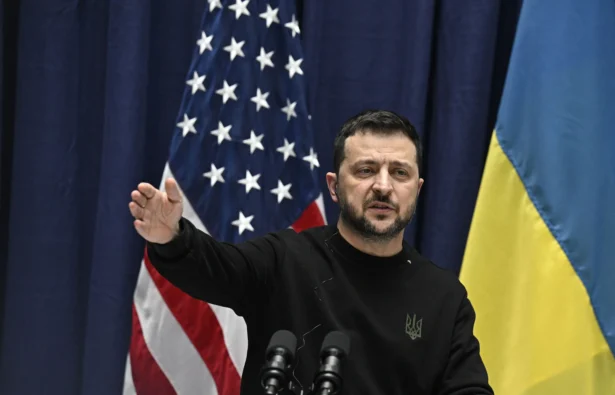The United States has approved a potential emergency $138 million in foreign military sales to Ukraine to aid the nation in repairing its HAWK missile systems and defend against Russian drone and cruise missile attacks, according to the U.S. State Department.
In an April 9 press release announcing the sale, the State Department said it would allow Ukraine to buy various “sustainment-related articles and services” for the HAWK Phase III missile system, including engineering and integration for the system’s communications and interoperability, and various refurbishments for the HAWK air defense fire units.
The sale will also go towards missile recertification components, tool kits and test equipment, spare parts, technical documentation, training, U.S. government and contractor technical and field office support, and more, officials said.
The HAWK is a medium-range, surface-to-air guided missile created by the American weapons manufacturer RTX Corporation, formerly known as Raytheon. Washington began shipping HAWK missiles to Kyiv in 2022 as part of an upgrade to the shoulder-launched Stinger antiaircraft air defense missile systems, which are smaller, shorter-range systems.
According to RTX Corporation’s official website, the missile allows the user to intercept stationary or moving targets at low to medium altitudes “with unparalleled accuracy.”
Ukraine Has ‘ Urgent Need’ to Increase Capabilities
The State Department noted contractors from Massachusetts-based RTX Corporation, and PROJECTXYZ based in Huntsville, Alabama, will undertake the work on the Hawk systems.
Officials also said the funding for the HAWK system in Ukraine is in the best interest of the United States and will support its foreign policy goals and national security objectives by “improving the security of a partner country that is a force for political stability and economic progress in Europe.”
On that basis, the State Department said it has waived the congressional review requirements under the Arms Export Control Act.
The Defense Security Cooperation Agency delivered the required certification notice of the possible sale to Congress on Tuesday, officials said.
“Ukraine has an urgent need to increase its capabilities to defend against Russian missile strikes and the aerial capabilities of Russian forces. Maintaining and sustaining the HAWK missile system will enhance Ukraine’s ability to defend its people and protect critical national infrastructure,” the State Department said in a press release announcing the sale.
Zelenskyy Warns Ukraine Will ‘Lose the War’
The $138 million is a higher estimation of the cost of the sale but the actual value may be lower “depending on final requirements, budget authority, and signed sales agreement(s),” according to the State Department.
“The proposed sale of this equipment and support will not alter the basic military balance in the region,” the department added.
The latest announcement follows Ukrainian President Volodymyr Zelenskyy’s appeal to U.S. lawmakers for additional funding for the war-torn nation, amid an intensified long-range bombing campaign by Russia in recent weeks.
His comments came after a Russian drone attack on April 6 reportedly left at least eight dead and ten injured in Kharkiv, Ukraine’s second-largest city. Ukraine’s military said on Facebook that its air defenses destroyed 28 of 32 drones and three of six missiles launched by Russia.

Speaking at a meeting with the UNITED24—a Ukrainian government-run fundraising platform established to raise money for Ukraine amid the war—on April 7, President Zelenskyy warned his nation will “lose the war” if Washington fails to take action and provide additional funding.
“If Ukraine loses the war, other states will be attacked,” he said, noting the possibility of other European nations being dragged into the conflict.
“This is a fact,” he said.
Lawmakers in the U.S. returned to Congress on April 9 following a two-week recess and will likely take up the discussion of further aid to Ukraine in the coming weeks, The Hill reported, although both sides of the aisle remain divided on the topic.
From The Epoch Times

